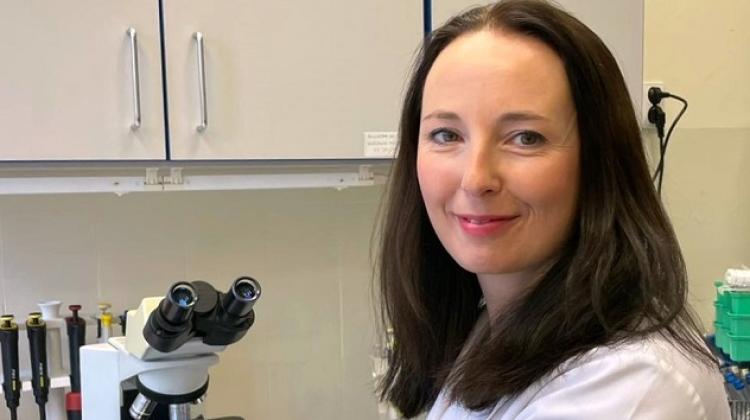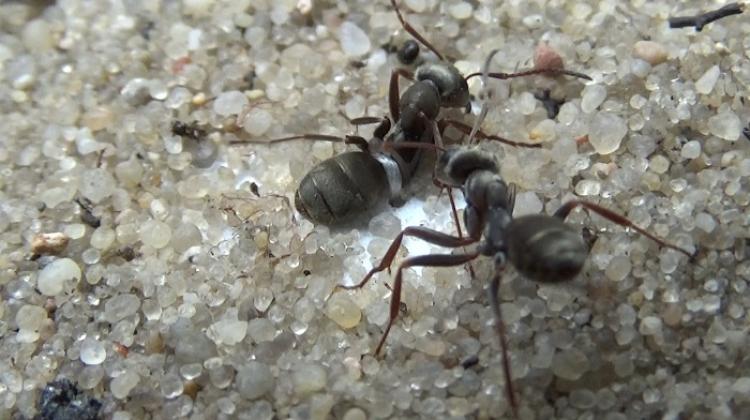Chemists from the Jagiellonian University develop an innovative antibacterial material
 Photo: Fotolia
Photo: Fotolia
Chemists from the Jagiellonian University have developed an innovative antibacterial material. It has a form of white, free flowing powder, which can be added to plastics and find applications in the chemical and food industries.
Project team leader Prof . Szczepan Zapotoczny said in an interview with PAP that the novelty of the material is its structure that slows down the release of silver nanoparticles.
"Our hybrid material exhibits a desired activity against microorganisms, and at the same time it is safe for the environment. Why? Because of its structure. Bactericidal, but harmful in large amounts silver nanoparticles, i.e. particles with dimensions of the order of one millionth of a millimetre, are enclosed - like raisins in the dough - in microparticles of calcium carbonate, which are neutral to the environment and humans. Trapped in this way, the nanoparticles act locally and are released into the environment slowly and in small amounts" - said the professor.
Existing plastics (all of which contain calcium carbonate) containing nanoparticles, have them in free, "unwrapped" form in their structure, which makes the process of their release into the environment relatively fast, and nanoparticles released in excess can be harmful to the environment and human health.
Currently, materials with silver nanoparticles are used for the production of household appliances, paints, packaging.
"Our solution responds to demand of the market, which values the environmental aspect. We did not discover the nanoparticles. We only wrapped them up so that they can be used in a safer way" - said the professor.
The material can be used wherever antibacterial action is needed, including hospitals, but also workplaces and homes.
Currently, the invention is being patented, and scientists commercialise their discovery. "We hope to cooperate with companies interested in our idea. We have already started talking with one of them" - the professor told PAP.
He added that if the new material tests positively, the chemists will produce it. "The technology of microparticles with enclosed silver nanoparticles does not require large expenditures related to the adaptation of production lines of materials such as plastics. It is sufficient to replace the calcium carbonate with ours, enriched with nano-silver material, in the technological process. In this respect, the commercialisation stage is relatively simple, and we hope that the ease of implementation of this solution will encourage businesses to implement our technology" - concluded Prof. Zapotoczny.
PAP - Science and Scholarship in Poland
bko/ ula/ dym/
tr. RL
Przed dodaniem komentarza prosimy o zapoznanie z Regulaminem forum serwisu Nauka w Polsce.


















